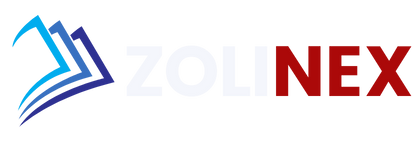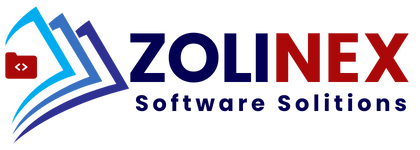How Zolinex is Transforming Education Management
How Zolinex is Transforming Education Management
The landscape of education is evolving rapidly, with technology playing a pivotal role in shaping how institutions operate and deliver learning experiences. Schools, training centers, and universities now face the challenge of managing a growing number of students, creating effective learning environments, and handling administrative tasks—all while adapting to the digital age. Zolinex stands out as a revolutionary solution, designed to meet these challenges head-on and transform education management.
1. A Unified Platform for Efficiency
One of the most significant barriers to effective education management is the use of multiple, disconnected tools to handle various tasks like student registration, progress tracking, and payment management. This fragmented approach often leads to inefficiencies, errors, and wasted time.
Zolinex solves this problem by offering a unified platform where everything—student data, course content, financial records, and analytics—is seamlessly integrated. This all-in-one solution not only simplifies workflows but also ensures that every department within the institution operates in sync.
For example, an administrator can view real-time enrollment numbers, a teacher can monitor class performance, and the finance team can track overdue payments—all from the same platform. This level of integration eliminates redundancies and allows staff to focus on their core responsibilities: delivering quality education.
2. Data-Driven Decision Making
In the age of big data, the ability to make informed decisions based on accurate information is critical. Zolinex provides real-time analytics and reporting tools that empower institutions to identify trends, measure success, and address challenges proactively.
- Student Performance Analysis: Teachers and administrators can easily track individual or group performance metrics, such as attendance, grades, and engagement levels. This allows them to spot struggling students early and intervene with tailored support.
- Course Effectiveness Metrics: Educators can evaluate how well their courses are performing by analyzing completion rates, feedback scores, and overall student satisfaction.
- Financial Insights: Institutions can monitor payment statuses, overdue balances, and revenue trends, ensuring financial stability and operational efficiency.
By leveraging these insights, institutions can make strategic decisions that enhance both the student experience and institutional growth.
3. Empowering Educators with Advanced Tools
Teaching goes beyond delivering lectures—it’s about inspiring students, fostering engagement, and driving results. Zolinex equips educators with a suite of advanced tools to make their jobs easier and more effective.
- Resource Management: Teachers can upload multimedia content, create quizzes, and organize course materials in one place, ensuring students have access to everything they need for success.
- Customizable Learning Paths: The platform supports flexible course structures, allowing educators to design lessons that cater to different learning styles and paces.
- Communication Channels: Teachers can engage with students through built-in messaging and discussion forums, fostering collaboration and interaction even in remote settings.
These features empower educators to focus on teaching and mentoring, while Zolinex handles the logistics.
4. Simplifying Financial Management
Financial management is often one of the most time-consuming aspects of running an educational institution. Tracking payments, managing overdue balances, and keeping financial records up to date can be a daunting task, especially for larger organizations.
Zolinex includes a built-in payment management system that streamlines these processes:
- Automated Payment Tracking: Keep tabs on paid, unpaid, and overdue invoices with clear, visually appealing dashboards.
- Installment Plans: Offer flexible payment options to students and their families, making it easier to manage tuition fees without stress.
- Detailed Financial Reports: Generate instant reports on income, outstanding balances, and payment trends to maintain financial transparency.
By automating these tasks, Zolinex reduces administrative burdens and ensures that institutions can focus more on education than on paperwork.
5. Supporting Global and Diverse Student Communities
Education is no longer confined to the boundaries of a single country or region. As institutions expand their reach globally, they face new challenges in managing students from diverse cultural and geographic backgrounds.
Zolinex is built to handle the complexities of global education management:
- Multi-Language Support: The platform can be customized to support multiple languages, ensuring accessibility for students from different regions.
- International Student Analytics: Administrators can track performance and engagement metrics for students from various countries, gaining valuable insights into their global impact.
This global adaptability makes Zolinex the perfect partner for institutions looking to expand their reach and embrace a multicultural learning environment.
6. Customizable and Scalable for Every Institution
Every educational institution is unique, with its own set of goals, challenges, and operational requirements. Zolinex recognizes this and offers a platform that is both customizable and scalable.
- Tailored Solutions: Whether you’re a small training center or a large university, Zolinex can be configured to match your institution’s specific needs. From branding to course structures, the platform is flexible enough to adapt.
- Scalability: As your institution grows, Zolinex grows with you. Whether managing hundreds or thousands of students, the platform remains reliable and efficient.
This level of adaptability ensures that Zolinex is not just a tool but a long-term partner in your success.
7. A Focus on Security and Reliability
In an age where data breaches are a growing concern, Zolinex prioritizes the security and reliability of your data. The platform is built with industry-standard encryption and data protection measures, ensuring that sensitive information remains safe at all times.








